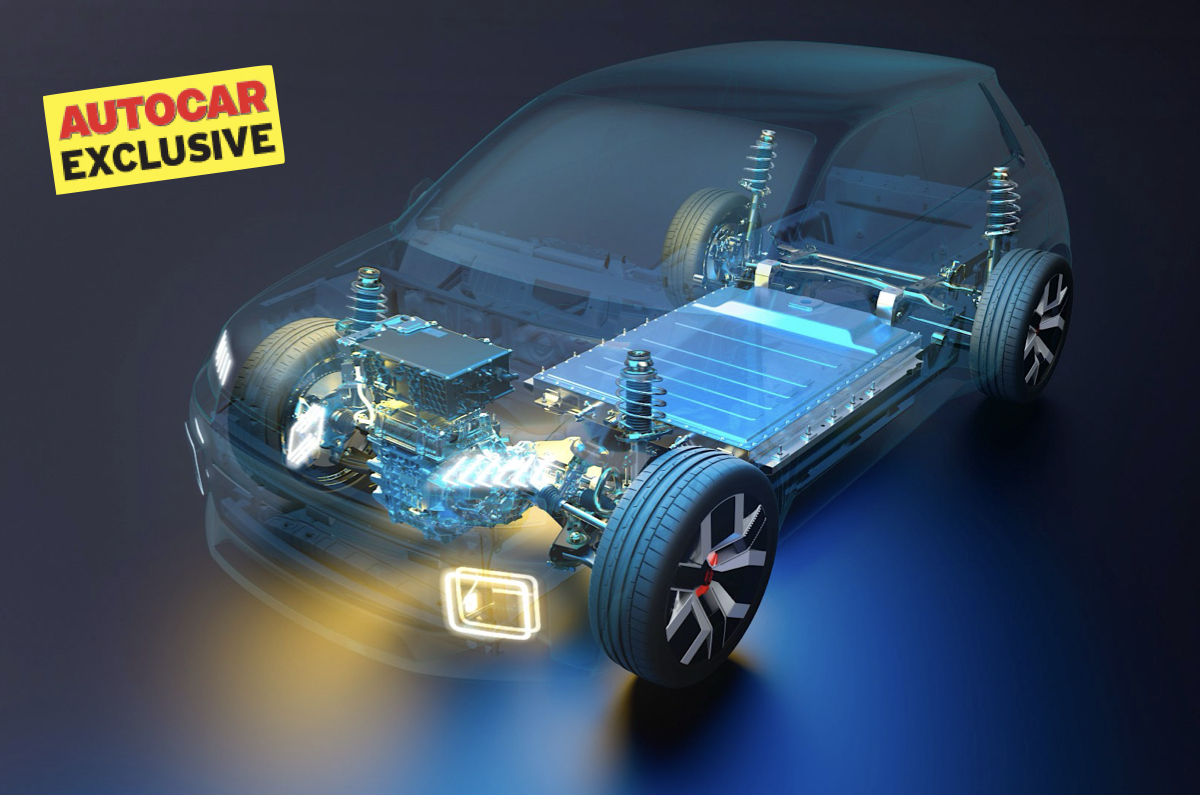
New midsize electric SUV likely to be based on CMF-B EV platform; could spawn a future Duster-based EV.
Renault-Nissan has dropped plans for an entry-level A-segment EV for our market, sources tell us. The alliance is now planning to work on a Creta-sized electric SUV based on the CMF-B EV platform – this new EV platform is being tweaked from the standard CMF-B architecture to support EV powertrain. It should be noted that the upcoming combustion-engined Renault Duster SUV, and its Nissan derivative, will be based on the heavily localised CMF-B platform.
- Renault-Nissan could bring a Rs 15 lakh C-segment e-SUV
- Expected to be a global SUV
- BEV needed to meet CAFE norms
Renault-Nissan C-segment EV could be priced from Rs 15 lakh
Sources say that the entry-level EV, mooted last year as part of its next steps for the Indian market, was not viable and the company is instead looking at a C-segment EV above 4 metres in length, to challenge the likes of Maruti Suzuki’s eVX as well as the Hyundai Creta EV. Sources also tell us that the Renault-Nissan alliance has already started engaging with home-grown cell and battery manufacturers to ensure an extremely accessible price point.
The target price set internally is around Rs 15 lakh to Rs 20 lakh for its EVs, hence there is a huge emphasis on localisation and local development by its R&D centre – the Renault Nissan Technology Business Centre India. The vehicle is likely to be powered by an LFP battery and may have a range of 300km per charge.
The alliance partners may utilise the CMF-B platform for its EVs – which is already the architecture shortlisted for the upcoming midsize SUVs for both the Renault and Nissan brands. While the project has been delayed a little, work on the CMF-B EV platform is said to have already kicked off globally and is slated to be ready for a market launch in 2026-2027.
Renault-Nissan C-segment EV will be a global offering
The upcoming EVs should have a minimum localisation of 70 percent, and there should be a significant export plan for the same, to ensure a viable business case. The volume of electric vehicles is still very low in India, but strategically, a battery electric vehicle is needed to ensure that the future CAFÉ scores are met, or else the alliance partners may have to cough up significant penalties, said one of the four people in the know of the matter. However, when approached for a comment, a Renault and Nissan Motor India spokesperson said they don’t comment on speculation.
WITH INPUTS FROM AKBAR MERCHANT
Also see:
New Renault Duster, Nissan SUV India line-up to be petrol-only
Renault Kiger likely to get a sporty variant
